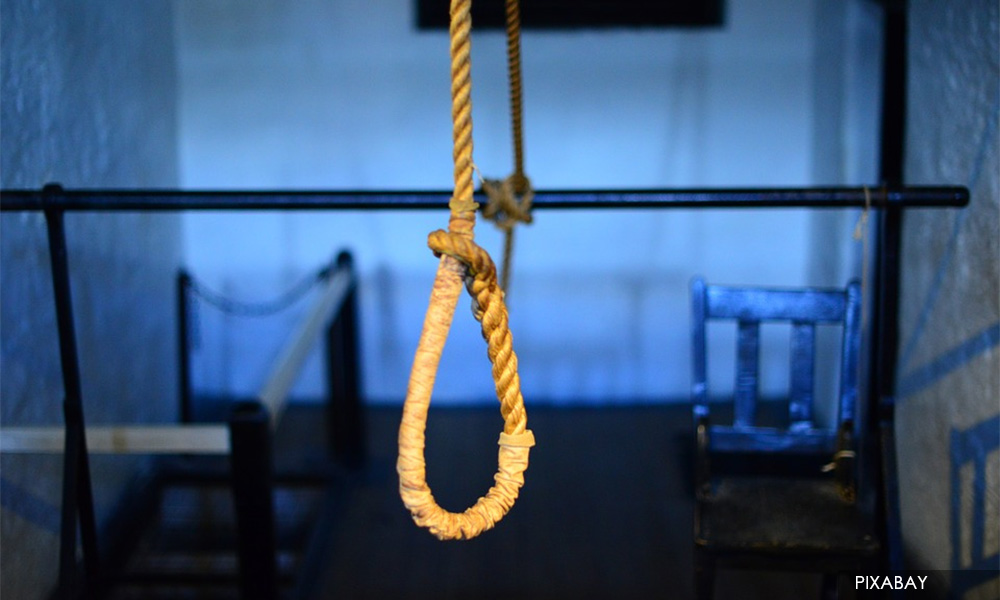Do a search here on the Malaysiakini website for articles that I have written about capital punishment and the death penalty, and chances are you will find a couple of pieces that I have written explaining my opinion on the matter. In fact, I have written about it on other platforms as well since it is something I feel quite strongly about.
So, for me, the recent decision in Parliament to abolish the mandatory death penalty has been a long time coming. I was a little bit caught by surprise that it happened so fast though. The multiple readings in the Dewan Rakyat that a bill had to go through in order to be passed happened in just one Parliamentary sitting.
The death penalty is something that has been debated and discussed in Malaysia for a very long time now. Those who are for it argue that it acts as a deterrent for serious crimes. It is more like an eye for an eye and whatnot so it would act like a lesson so others would not commit to doing bad things.
However, no data anywhere around the world supports the fact that the death penalty reduces crime. There have been many countries and regions that have the death penalty yet still see a high rate of serious crime. Also, there are many countries that don’t have the death penalty and yet do not have a relatively high crime rate
Human rights activists (and me) tend to believe that society needs to progress, and one way to do that is to develop more humane and effective approaches when it comes to criminal justice. There has to be a better way to rehabilitate criminals rather than condemn them to death because it would just perpetuate a cycle of vengeance.
A chance to repair harm
Restorative justice seems to be a pretty sound concept, which emphasises on the need to repair the harm that is caused by crime. It is supposed to give an opportunity to an offender to take responsibility for his or her actions and for victims to be a part of the process to reduce their anger, sadness, fear, and anxiety.
Through restorative justice, we can be more assured that we are protecting basic human rights yet also giving a sense of justice to victims. The death penalty has long been considered a violation of human rights because it is cruel, inhumane, and degrading. It doesn’t allow for redemption and, most importantly, rehabilitation.
There has also been a history of discrimination around the world when it comes to those who have been meted out the death penalty. It is open to abuse and has been linked to wrongful convictions and a lack of transparency. Bias can also potentially exist where the more marginalised and underprivileged tend to not have an equal ability to defend themselves.

In November 2018, Malaysia went through its Universal Periodic Review in Geneva, Switzerland. Sanctioned by the UN Human Rights Council, it reviews the human rights performance of all UN member states, of which Malaysia is a part. One of the biggest issues Malaysia faced is the fact that the country still practices the death penalty.
With the abolishment of the mandatory death penalty now having been passed in Parliament, hopefully it shows that Malaysia is serious about protecting human rights and the dignity of every individual. It also shows that Malaysia is progressing as a society and not caught up in preserving archaic forms of criminal justice.
There are still many other issues that Malaysia needs to address such as those surrounding freedom of speech and the media, the protection of women and children (including gender equality), racial and religious freedoms, and the mistreatment of migrant workers, refugees, and the LGBTQ community.
But if it’s commitment and political will that are needed, then I think we have it in us to address all of these issues as fast as we can. It is inspiring to see how the government and Parliament were able to move forward so fast on abolishing the mandatory death penalty that I am confident that this can be done for other pressing issues too.
I also hope that the move by our country can spur and inspire other countries to also improve their human rights practices. Countries that still practice the death penalty can take Malaysia as an example, especially neighbouring countries in Southeast Asia such as Singapore, Indonesia, and Thailand. If we can do it, then you can too. - Mkini
ZAN AZLEE is a writer, documentary film-maker, journalist and academic. The Sheraton move really frustrated him but maybe after November 2022, he can start feeling better again. Visit fatbidin.com to view his work.
The views expressed here are those of the author/contributor and do not necessarily represent the views of MMKtT.




No comments:
Post a Comment
Note: Only a member of this blog may post a comment.